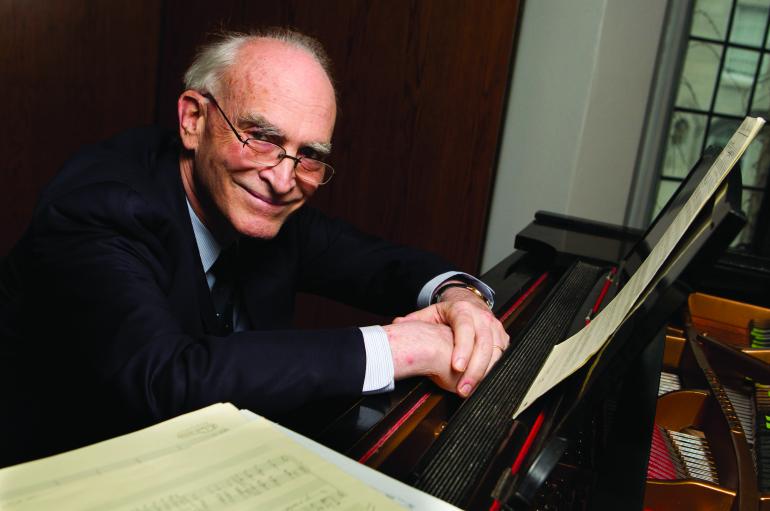
In 2017, Philip Gossett, Professor Emeritus in the Department of Music at the University of Chicago, donated his complete music collection of more than 2,000 items to The Juilliard School as part of their special collections. Today, over 500 of these items are available digitally on The Philip Gossett Music Collection website. A recent initiative, the digitization of the collection was made possible by a generous gift from Brian J. and Darlene Heidtke. The collection represents Gossett’s lifetime of study of nineteenth-century Italian opera and is part of the Peter Jay Sharp Special Collections in the Lila Wallace Acheson Library.
Gossett wanted the collection to be in New York City because of his connections with Juilliard and the Metropolitan Opera, having attended Juilliard's Preparatory Division (now Pre-College) in high school and having also frequented the Metropolitan Opera during this time. Gossett also wanted to ensure that performers would have access to the collection. Now that a large portion of the collection is digitized, performers, composers, and scholars from around the world have access to some of the most important resources for studying nineteenth-century Italian opera.
The Philip Gossett Music Collection website hosts a library of digital images of 462 scores and 71 books that are no longer covered by copyright, bequeathed to The Juilliard School. There is also a finding aid on The Juilliard School Library website for materials that were not digitized.
About the collection, from The Philip Gossett Music Collection website:
Digitized resources from the Philip Gossett Music Collection comprise 462 scores (primarily opera vocal scores) and 71 books on the subject of Italian opera whose dates of publication span the late 18th to early 20th centuries. Vocal scores by Bellini, Donizetti, Rossini, and Verdi figure prominently, with 84 other composers also represented. A notable feature of the collection is the inclusion of multiple editions of some scores which Gossett compared in order to trace deviations from composers' holographs, inaccuracies he attempted to correct in modern critical editions. The books, in Italian, French, and German, comprise librettos, composers' biographies, collected correspondence, and music criticism.
About Philip Gossett, from The Philip Gossett Music Collection website:
Born in New York, Gossett began studying piano at 5 and attended Juilliard's Preparatory Division (now Pre-College) for three years while he was in high school, a period during which he also spent Saturday afternoons at the Metropolitan Opera. He received his bachelor's degree in physics from Amherst and his doctorate in musicology from Princeton, writing his dissertation on the music of Rossini, Bellini, Donizetti, and Verdi. He subsequently studied Rossini's operas on a Fulbright in Paris.
Gossett's primary scholarly interests were in 19th-century Italian opera, sketch studies, aesthetics, textual criticism, and performance practice. He authored books on Donizetti as well as the award-winning Divas and Scholars: Performing Italian Opera (2006, Chicago); he was also general editor of collected editions of the works of Verdi and Rossini. He returned to Juilliard over the years to coach singers in Juilliard Opera's production of Rossini's Le comte Ory (2007), as a consultant for the Juilliard Choral Union's U.S. premiere of the 1864 edition of Rossini's Petite messe solennelle (2004), and to give several doctoral forums: “What Makes an Edition ‘Critical' and Why Performers Should Care: Reflections on Rossini and Verdi” (2004); “From Il Viaggio a Reims to Le comte Ory: Rossini Invents Petite Opéra” (2007); and “Falstaff and the Musical Fragment (2009).” On announcing the gift, Jane Gottlieb, vice president for library and information resources, expressed her gratitude to Gossett “for entrusting Juilliard with the care and preservation of his extraordinary collection” and said she looks forward “to sharing its treasures with performers and scholars.”
